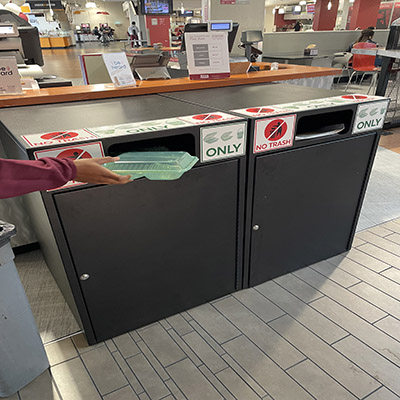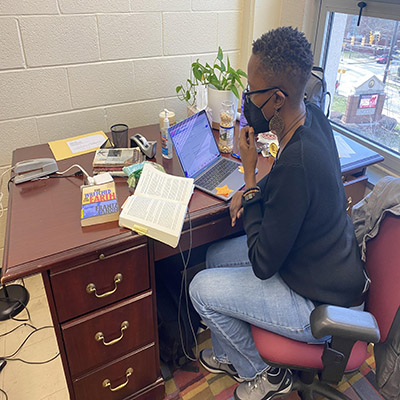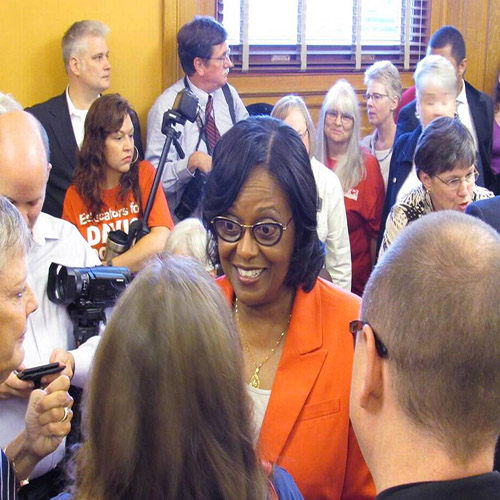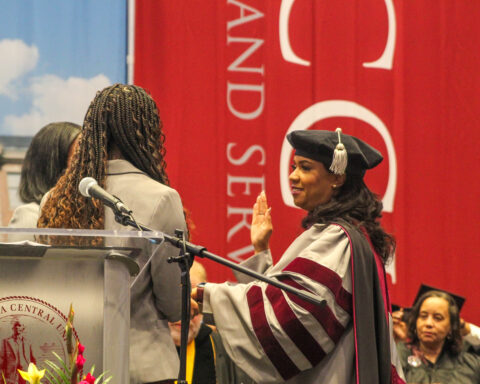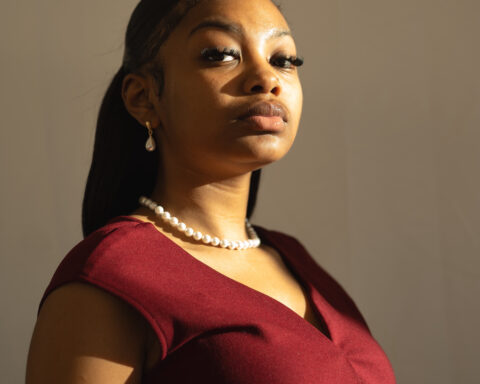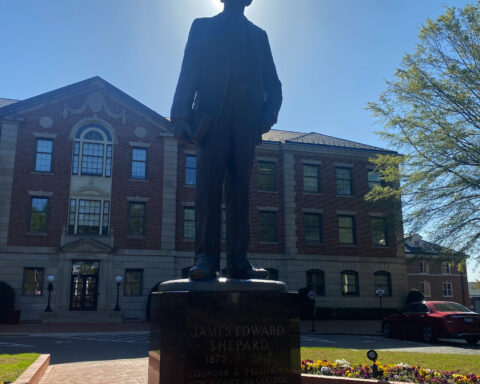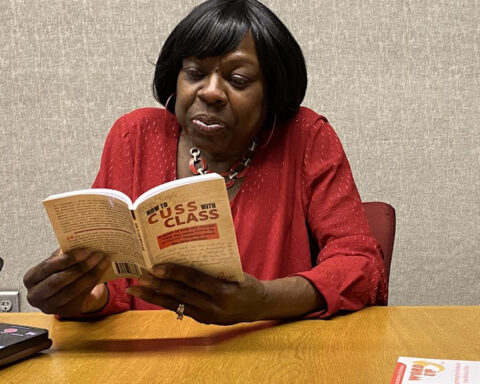A research team led by the chair of the Department of Environmental, Earth and Geospatial Sciences, Gordana Vlahovic, is reviewing N.C. Central University’s sustainability plan, specifically its community awareness efforts.
One focus is teaching students to understand the importance, impact, and definition of sustainability. The team has also examined sustainability efforts by other North Carolina public universities and community colleges to see how they compare to NCCU’s.
“Sustainability means to use the current resources with the mindset of future generations,” Vlahovic’s research assistant Samuel Akinnusi said. Other team members include Tony Esimaje, a research assistant, and Christopher McGinn, an associate professor in the department.
The project has three phases.
The first phase looks at how accessible sustainability information is at various institutions in the state. This included each institution’s curriculum, location, and sustainability efficiency.
NCCU has signed a UNC system sustainability pledge that serves as a commitment to “proactively manage its impact on energy, water, and other natural resources.” But according to Akinnusi, “We don’t have anything to show for it. We don’t show what we do. That’s one of the interesting things that we are pursuing with this project: to show what we are doing.”
McGinn said that HBCUs haven’t been very successful with sustainability.
“From a demographic standpoint, minority communities don’t rank very high in consciousness in sustainability efforts around the world,” McGinn said.
During the second phase of research, the team will collect data on faculty and students’ perceptions of sustainability. Akinnusi said that it’s important to educate students, but before that it’s necessary to know how they think about sustainability.
“When you get your perspective, then you find a way to redirect the perspective,” Akinnusi said. “When we redirect the perspective, then we see a way to get them involved and create a sustainable model.”
According to a campus-wide sent email NCCU Hospitality and Campus Enterprises are working diligently to improve campus sustainability. There is also an initiative to introduce Eco-Containers at W.G. Pearson Dining Hall.
“I think that there are simple things that can be done, even just awareness from the students,” McGinn said, adding that he would like to see more recycling across campus and more water fountains that serve reusable water bottles.
Existing programs include: the purchase of fuel efficient vehicles, wells, recycling, improved campus-wide design standards, performance contracting, power and water conservation measures, and new steam infrastructure.
“Sometime last year there was a team setup to boost sustainability efforts, headed by the director of transportation services,” Esimaje said, making note of the campus’s current efforts to replace most vehicles used on campus with electrically powered ones.
As part of the Clean Fuel Advanced Technology Project, NCCU was awarded $39,940 for the purchase of three Neighborhood Electric Vehicles. Switching to an environmentally friendly vehicle has reduced carbon emissions on campus and promoted the use of these forms of transportation.
“I think that’s important because I think that’s how campuses are going to survive. If they’re sustainable, if they’re almost self sustainable, if they aren’t environmentally harmful to the community, and if they fit into the changing world view, then those campuses will survive on a small scale,” McGinn explained.
Moving forward, NCCU would like to appoint a sustainability officer and committee, install a sub-metering system throughout the university to measure electrical energy consumption, enforce the R&R planning process, and begin new construction.
“As we go on and more influence comes from your generation (generation Z) and that age group, and people kinda age out of certain positions then there will be that need,” McGinn said, referring to the decisions made by older generations when the campus was founded.
He stressed the importance of being a “small piece” in a “big puzzle,” and reminded students to be conscious of these efforts as they enter the workforce.
“Instilling it on our campus is important to the long term success, not only of our campus but of the world in general. Or of the sustainability efforts of the state in general,” he proceeded to remind students that once they are in the “real world,” they won’t necessarily have the resources offered to them on campus.
Written by A’brianna Dones

